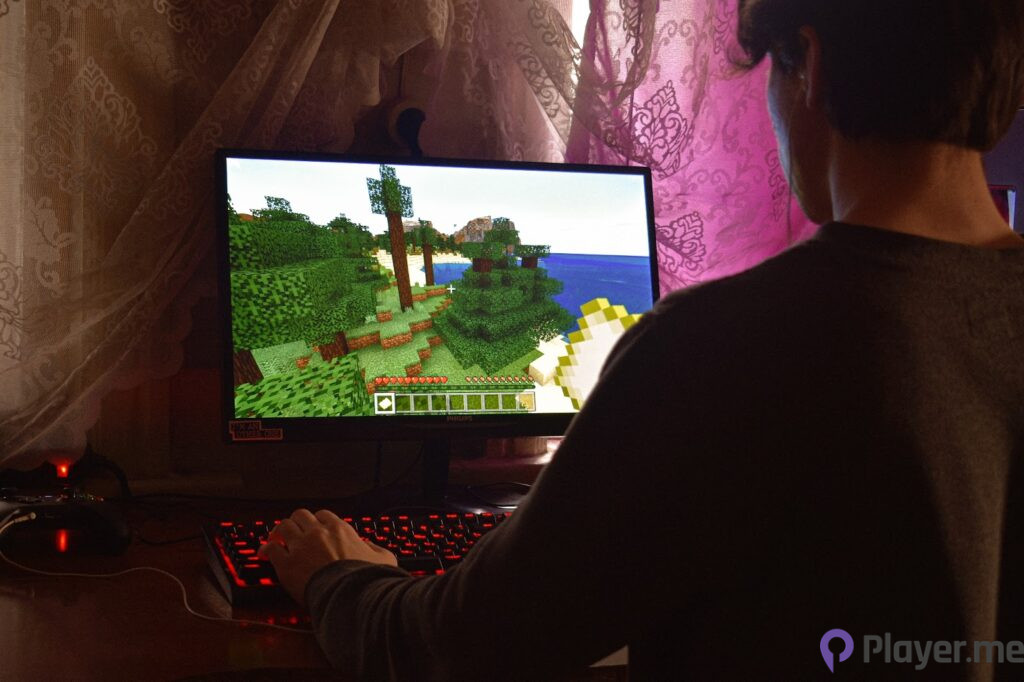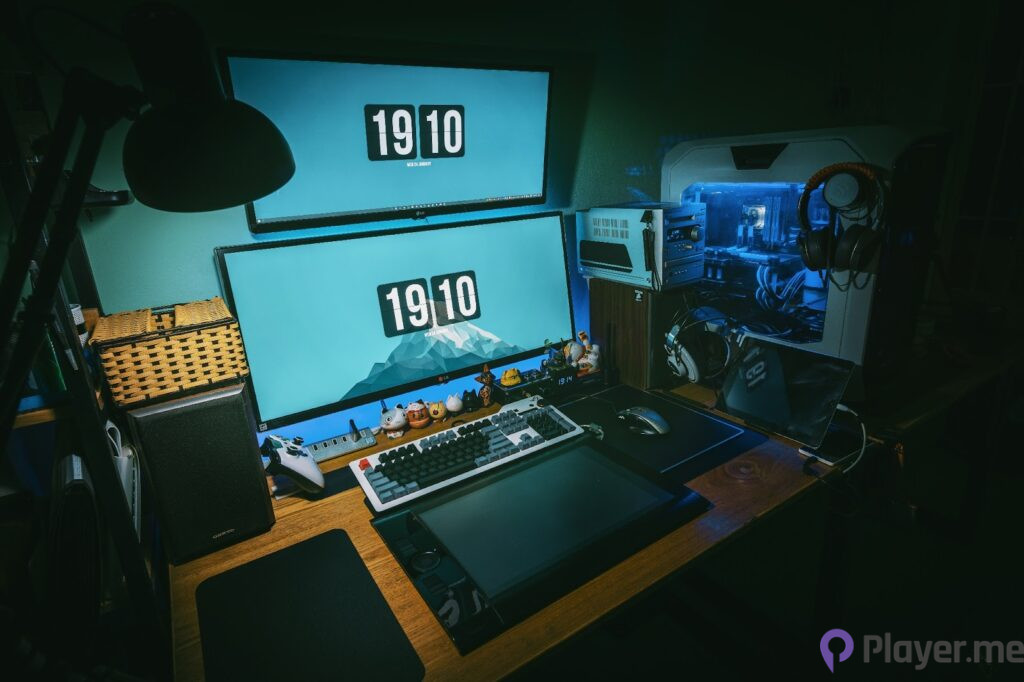Welcome to the exciting world of the gaming industry — Where creativity, technology, and passion meet to create exhilarating experiences. If you’ve ever dreamed of turning your love for video games into a fulfilling career, the good news is that you contribute to the industry in a myriad of ways. The gaming industry offers a plethora of opportunities, from crafting immersive narratives to developing cutting-edge graphics. The journey isn’t for the weak though, but with the right knowledge and skills, you can also become a game developer, designer, or professional.

Also Read: What Is Short Selling and How Does It Work in Crypto?
The Competitive Nature of the Gaming Industry
Like any other industry, the gaming landscape is fast-paced and rapidly evolving. So, staying ahead of the curve is crucial, which is why there are many educational institutions and online platforms offering a great range of courses. These courses cover a diverse range of subjects, such as programming, soundtrack design, design, scripts, and project management, among others.

Top Five Courses to Study if You Want to Work in the Gaming Industry
These are the top five courses to study if you’re a passionate gamer who wants to contribute to the gaming industry. At the same time, you’ll be making some cool cash here.

#1: Marketing
Marketing has proven to be essential to selling a game so it’s a pivotal tool in the gaming industry. One that provides numerous benefits for game developers and publishers. Here are some key advantages:
- Increased Visibility and Reach: Marketing strategies raise awareness to reach a wider audience — Ensuring that your game stands out in today’s overcrowded marketplace.
- Anticipation and Excitement: Pre-launch marketing campaigns will help build hype, so gamers won’t have just a passing interest in your video game.
- Post-Launch Support and Longevity: Marketing also extends beyond pre-launch campaigns. It includes content updates, expansion packs, and community events. These updates will keep player engagement consistent, extend the game’s lifespan, and help build a loyal community.
#2: Programming
Programming is the literal backbone of game development, allowing the creation of immersive and interactive experiences. The field is also wide so you can find a course right up your alley. This includes designing game mechanics and implementing enemy artificial intelligence. Some key reasons why programming is invaluable in the gaming industry are:
- Game Development: Programming is the perfect tool for translating creative concepts into interactive assets in-game. A game developer’s job includes designing in-game physics, mechanics that control movements, and integrating audio-visual elements.
- Technology Integration: Video game programmers can adapt advanced technologies like VR, AR, and cloud gaming, to innovate.
- Performance Optimisation: Programmers optimise code to improve the game’s performance and reduce its loading times while using memory efficiently.
- Artificial Intelligence (AI): Programmers can create AI systems for realistic NPCs, enemy behaviour, and adaptive in-game decision-making.
- Tool and Engine Development: Programmers create custom tools and engines to ease the process of game development and thus, reduce the development time.
- Post-Launch Support: You need top-tier programming skills to fix bugs, patch loopholes, and update your content without reducing the stability of the game.
#3: Art
Art is invaluable in many fields, and the gaming industry is no exception. It plays an important role in developing visually stunning and immersive gaming worlds. From bringing characters to life to building immersive realms, art breathes life into our video games. Some factors why art is crucial in the gaming industry are:
- Visual Storytelling: Art portrays narratives, sets the theme, and encourages gamers to play because it’s literally eye candy.
- Aesthetic Appeal: Striking art will leave a strong impression, making games more memorable for gamers. Nobody likes an ugly game, well, maybe except for Minecraft.
- Player Engagement: Art immerses gamers in made-up realms of video games. It can also be used to guide players via intuitive visual cues.
- Branding and Recognition: The more distinctive your art style is, the better your chances of getting your brand out there. Visuals help establish a game’s identity and foster fan loyalty.
#4: Music
Music is an integral part of the gaming industry, enhancing player experiences and creating memorable game worlds. From setting the mood to heightening emotional impact, music engages players and pushes them to explore or in the case of God of War’s soundtracks, destroy your opponents. Here are a few benefits of music in the gaming industry:
- Atmosphere and Emotional Impact: Music sets the tone and enhances emotional engagement.
- Immersion and Engagement: Well-composed music immerses players in the game world for further engagement.
- Gameplay Enhancement: Music directly impacts gameplay, heightening interaction and enjoyment.
- Characterisation and Theme Development: Music adds depth to characters and themes, enriching their unique narrative. Think of WWE games, the music alone lets players predict which opponent is coming to the ring.
- Cultural Impact and Enjoyment: soundtracks aren’t limited to the gaming industry alone, since it also serves as cultural highlights.
#5: Computer Engineering
Computer engineering powers the technology behind game development, hardware optimisation, and the overall gaming experience. It’s a field that requires expertise in computer science and electrical engineering to design and develop the hardware, software, and systems that are at the core of modern games. Some reasons why you should consider becoming a computer engineer in the video game sector are:
- Hardware Development: Computer engineers are in charge of designing and optimising gaming hardware components. So, it’s the reason why your consoles are cooler and your games run smoother.
- Game Engine Development: They help in building efficient and powerful game engines that’ll cut the development time down by at least 15%.
- Graphics and Visual Effects: Computer engineers are also professionals who improve the ability of your gaming hardware to render assets in-game.
- Networking and Online Gaming: Computer engineers are also the experts who develop seamless online gaming experiences. They’re in charge of setting up the servers that host the different game sessions that players enjoy online.
- VR and AR: They develop virtual and augmented reality technologies for next-level gaming.
Our Final Say
Whether you’re a fan of traditional classroom learning, online platforms, or a mix of both, you’ll find a variety of courses tailored to your interests. These courses incorporate hands-on projects from industry experts, thus exposing you to the latest practices, tools, and technologies used in game development. So, you’ll acquire the knowledge, skills, and portfolio necessary to create a competitively unique style. Game development is where the money is, but you’ll need to grind to master it. But for sure, it’s a game-changer!

Frequently Asked Questions
Do You Need a Degree to Work in Gaming?
No, you don’t need a degree to work in gaming regardless if your role is complex or otherwise. But you’ll earn more with a degree in more technical roles like software engineer manager. Creative areas like music, script, and media design don’t need a degree — Only sheer talent and hard work.
Is Gaming a Job or Career?
Welcome to the 21st century where professional gamers walk home with hundreds of thousands of dollars per year. Yes, you heard that right — Gaming is one of the hottest professions out there. And the great aspect is that it’s all skill-based. You don’t even need to join an esports team to start making money. Just sign up on platforms like Twitch and YouTube.
How to Earn Money Through Gaming?
You can earn money through gaming in a myriad of ways. This includes playing esports which is a highly competitive field. What’s more? You can earn money from betting online or by streaming your gaming skills on Twitch or YouTube.





